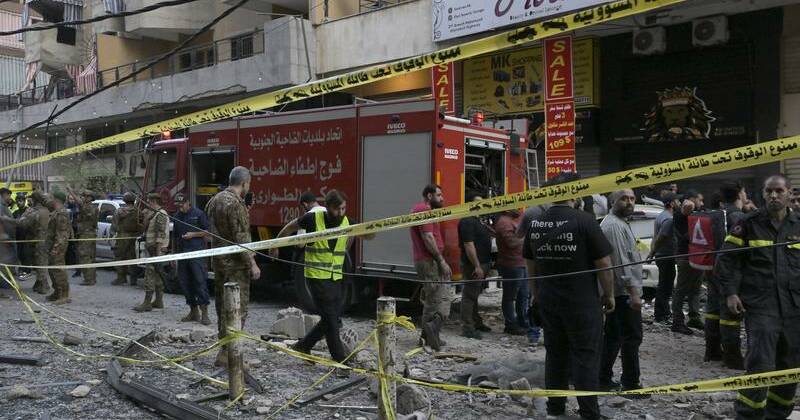
Israel conducted an air strike on a southern suburb of Beirut, targeting a senior official of the militant group Hezbollah, despite an ongoing ceasefire brokered by the United States nearly a year ago. The strike, which occurred on Sunday, is significant as it represents the first attack on Beirut in several months. Israeli Prime Minister Benjamin Netanyahu confirmed that the operation aimed at Hezbollah’s chief of staff, identified by sources as Ali Tabtabai.
The United States had previously imposed sanctions on Tabtabai in 2016, describing him as a key leader within Hezbollah and offering up to $5 million for information leading to his capture. Reports indicate that the strike resulted in at least four fatalities and left around two dozen others injured, necessitating their transfer to nearby hospitals. As of now, it remains unclear whether Tabtabai was among the casualties.
Lebanese President Joseph Aoun called for international intervention following the air strike, urging the global community to act against Israeli hostilities in order to prevent further escalation of the security situation. Israel has frequently targeted Lebanon since the ceasefire took effect in November 2024, asserting that these operations are essential for national security. The Israeli government maintains that it will not allow Hezbollah to regain strength or pose a threat from within Lebanese territory.
Residents of the Haret Hreik suburb recounted hearing the roar of warplanes before the explosion, prompting many to flee their homes in fear of additional strikes. According to Shosh Bedrosian, spokesperson for the Israeli government, “Israel continues to insist on the full enforcement of the ceasefire agreements with Lebanon while taking steps to ensure our security.” When asked whether the United States was informed prior to the strike, Bedrosian stated that Israel operates independently.
The air strike is part of a broader campaign by Israel, which has reportedly resulted in the deaths of numerous Hezbollah leaders, including the group’s head, Hassan Nasrallah, and thousands of its fighters over the past two years. While Israel claims these actions are necessary for self-defense against potential Hezbollah attacks, the militant organization has accused Israel of violating the ceasefire numerous times.
Under the terms of the ceasefire, Hezbollah is obliged to cease its military presence near the Israeli border, while Israel is expected to withdraw its military from Lebanon. Despite these stipulations, Israel continues to occupy several posts in southern Lebanon, alleging that Hezbollah is attempting to regroup in the area. The group, for its part, insists that it has complied with the ceasefire, asserting that it has not engaged in hostilities against Israel since the agreement was reached.
As tensions persist and the situation evolves, the international community watches closely for any further developments.






